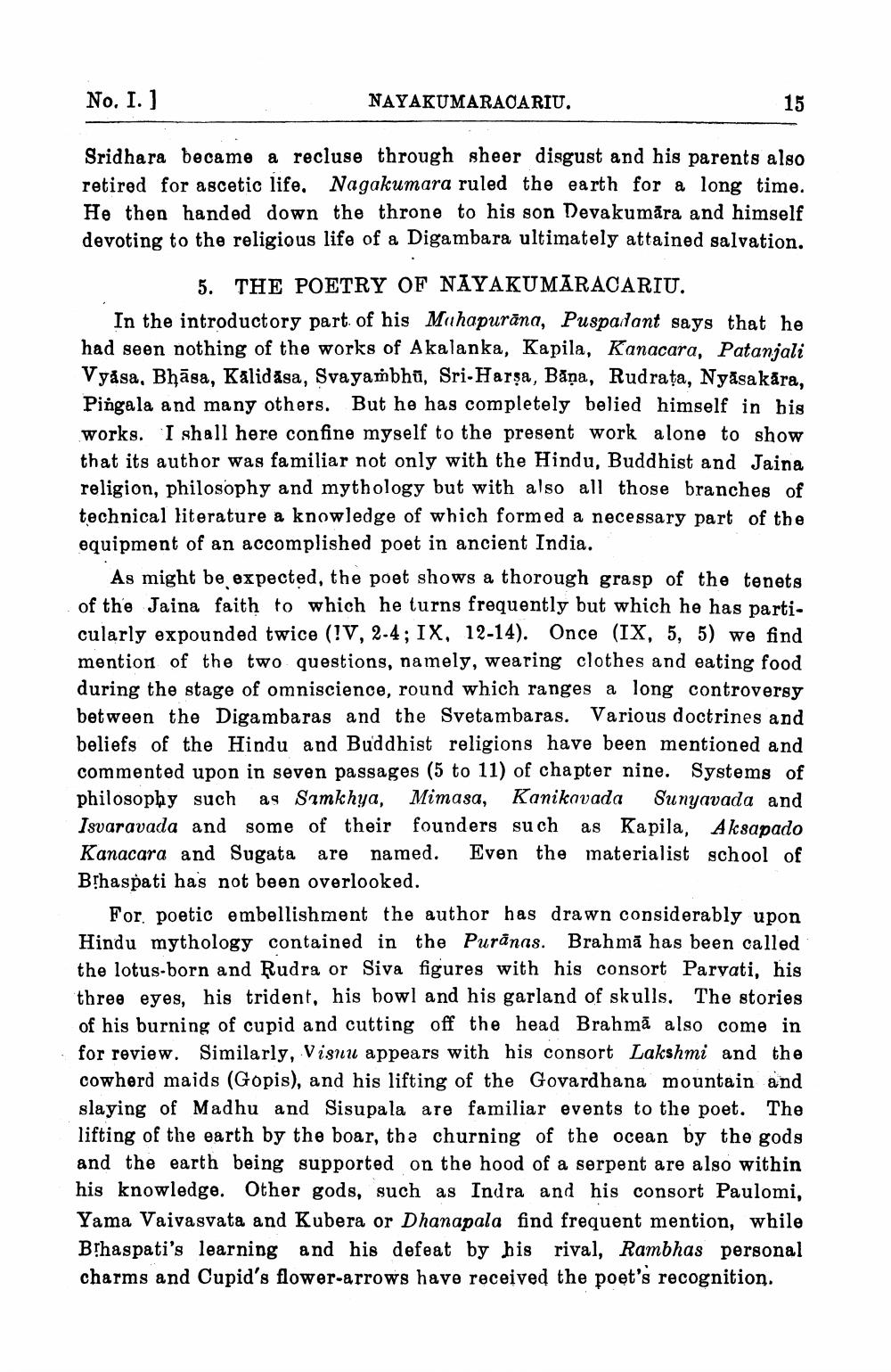________________
No. I. )
NAYAKUMARACARIU.
15
Sridhara became a recluse through sheer disgust and his parents also retired for ascetic life, Nagakumara ruled the earth for a long time. He then handed down the throne to his son Devakumāra and himself devoting to the religious life of a Digambara ultimately attained salvation.
5. THE POETRY OF NAYAKUMARACARIU. In the introductory part of his Mahapurāna, Pusparlant says that he had seen nothing of the works of Akalanka, Kapila, Kanacara, Patanjali Vyåsa, Bhāga, Kalidasa, Svayambhū, Sri-Harsa, Băņa, Rudrața, Nyasa kara, Pingala and many others. But he has completely belied himself in his works. I shall here confine myself to the present work alone to show that its author was familiar not only with the Hindu, Buddhist and Jaina religion, philosophy and mythology but with also all those branches of technical literature a knowledge of which formed a necessary part of the equipment of an accomplished poet in ancient India.
As might be expected, the poet shows a thorough grasp of the tenets of the Jaina faith to which he turns frequently but which he has particularly expounded twice (!V, 2.4; IX, 12-14). Once (IX, 5, 5) we find mention of the two questions, namely, wearing clothes and eating food during the stage of omniscience, round which ranges a long controversy between the Digambaras and the Svetambaras. Various doctrines and beliefs of the Hindu and Buddhist religions have been mentioned and commented upon in seven passages (5 to 11) of chapter nine. Systems of philosophy such as Samkhya, Mimasa, Kanikavada Sunyavada and Isvaravada and some of their founders such as Kapila, Aksapado Kanacara and Sugata are named. Even the materialist school of Bịhaspati has not been overlooked.
For poetic embellishment the author has drawn considerably upon Hindu mythology contained in the Puranas. Brahmā has been called the lotus-born and Rudra or Siva figures with his consort Parvati, his three eyes, his trident, his bowl and his garland of skulls. The stories of his burning of cupid and cutting off the head Brahmă also come in for review. Similarly, Visuu appears with his consort Lakshmi and the cowherd maids (Gopis), and his lifting of the Govardhana mountain and slaying of Madhu and Sisupala are familiar events to the poet. The lifting of the earth by the boar, the churning of the ocean by the gods and the earth being supported on the hood of a serpent are also within his knowledge. Other gods, such as Indra and his consort Paulomi, Yama Vaivasvata and Kubera or Dhanapala find frequent mention, while Bihaspati's learning and his defeat by his rival, Rambhas personal charms and Cupid's flower-arrows have received the poet's recognition.




